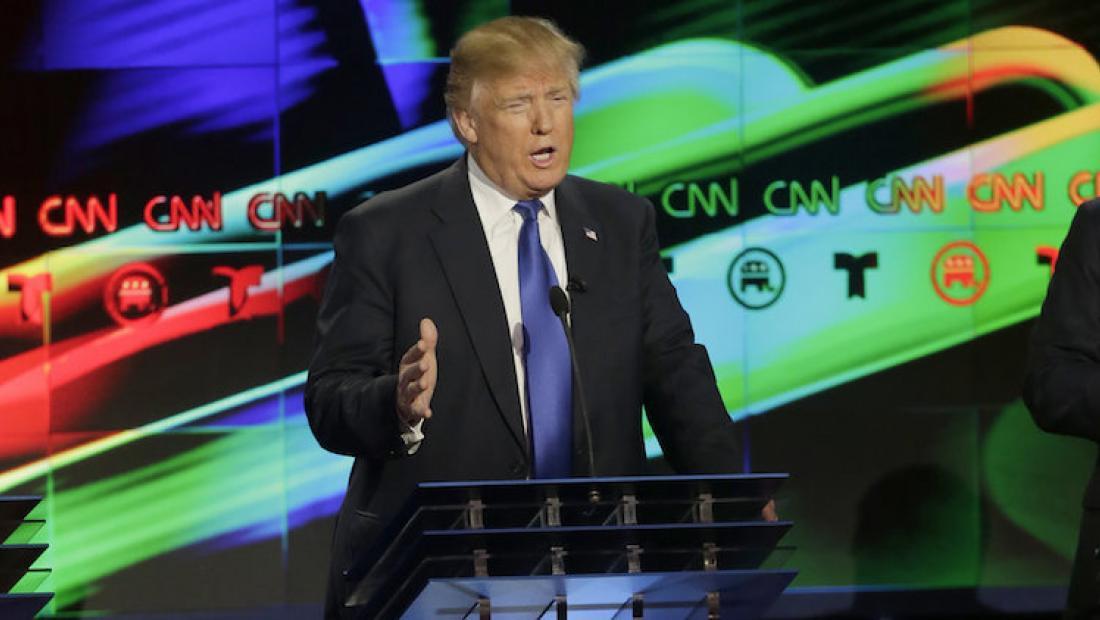President Mandates Review of China IP Threat

The smarter way to stay on top of broadcasting and cable industry. Sign up below
You are now subscribed
Your newsletter sign-up was successful
President Donald Trump has directed the U.S. Trade Representative to look at whether China should be investigated for unreasonable or discriminatory practices that threaten U.S. companies' intellectual property rights, innovation and technology.
In an email highlighting positive reactions to the memo, the White House focused almost entirely on affected defense industry companies, including shout-outs from Raytheon, General Dynamics, Lockheed Martin and Northrup Grumman.
"Violations of intellectual property rights and other unfair technology transfers potentially threaten United States firms by undermining their ability to compete fairly in the global market," the memorandum said.
Protecting intellectual property and IP piracy are obviously big issues for the tech industry.
The President did not call for an investigation, but rather asked the USTR to determine whether an investigation of Chinese laws, policies and practices was needed, though there was a clear suggestion there were problems that needed addressing.
The White House called it the first step toward protecting American innovation and intellectual property.
The White House cited reports that had suggested China benefitted greatly from the theft of American IP, including via "joint venture requirements, equity ownership limitations, opaque administrative processes, and other practices aimed at the transfer of United States technology to Chinese companies."
"Illicit acquisition of U.S. IP by Chinese firms is a real and serious issue," said Gary Shapiro, president and CEO of the Consumer Technology Association. "CTA commends the president for his efforts to protect U.S. companies against IP theft....[W]e urge the White House to move forward in a way that preserves global supply chains and does not inadvertently expose U.S. companies to uncertainty, burdensome tariffs or retaliation.”
The smarter way to stay on top of broadcasting and cable industry. Sign up below
"The Information Technology and Innovation Foundation commends the Trump administration for considering a formal investigation into Chinese trade practices that subvert global trade rules and harm the U.S. economy," said ITIF President Robert Atkinson. "Simply put, China is an innovation mercantilist. It tries to gain advantage in strategically important industries by using dubious policies and practices such as coercing competitors into handing over proprietary technologies and intellectual property."
The response of the U.S. Chamber of Commerce was positive, but measured.
“If the U.S.-China relationship is to deliver mutually beneficial growth, U.S. firms must enjoy the same broad, secure access to the Chinese market that Chinese firms already enjoy to the United States. Equally important, China must end forced technology transfer and protect foreign-owned intellectual property rights within China.
“The Executive Memorandum signed today is an opportunity for the U.S. government to examine these issues and consider a prudent path forward."
“We hope that China will take the administration’s assessment seriously and simply improve our trade relationship by living up to their commitments to make their market more accessible," said Dean Garfield, President of Tech trade group ITI. "Doing so will benefit both the Chinese and the American people.”
“China’s practice of forcing businesses to transfer technology – for example by requiring that they disclose source code or other intellectual property in order to do business there – have long harmed U.S. companies and American workers, not only in the technology industry, but across the economy....
"ITI supports the Trump Administration in identifying effective legal remedies for these barriers, while working to find pathways for China to modify its policies and practices in a productive and mutually beneficial way."
Contributing editor John Eggerton has been an editor and/or writer on media regulation, legislation and policy for over four decades, including covering the FCC, FTC, Congress, the major media trade associations, and the federal courts. In addition to Multichannel News and Broadcasting + Cable, his work has appeared in Radio World, TV Technology, TV Fax, This Week in Consumer Electronics, Variety and the Encyclopedia Britannica.

